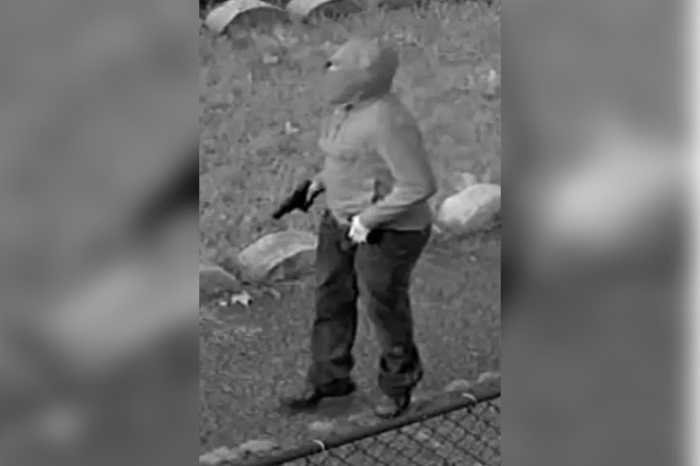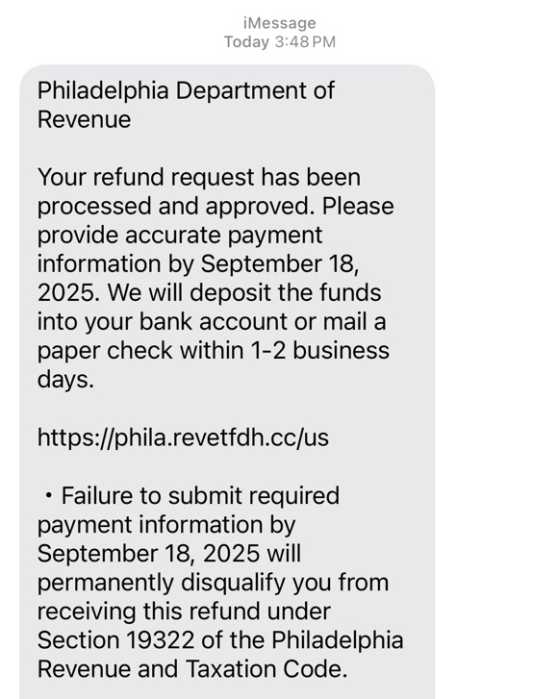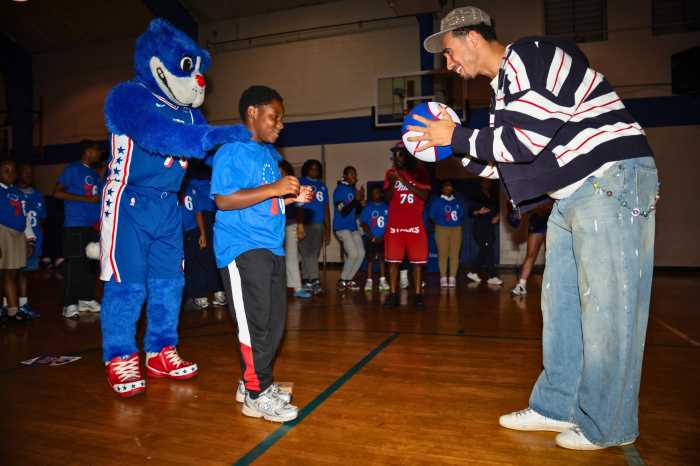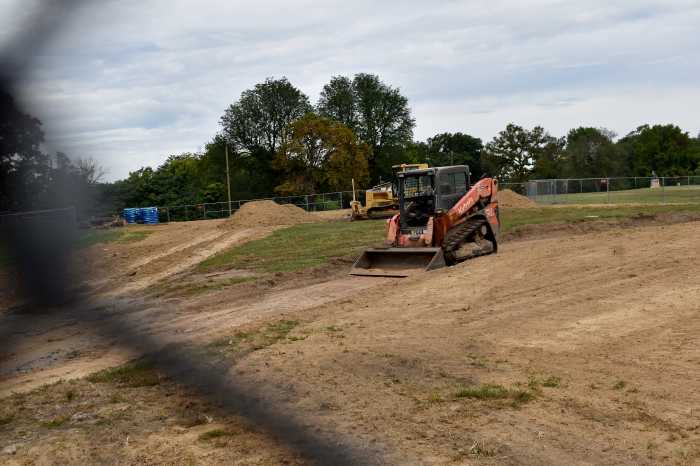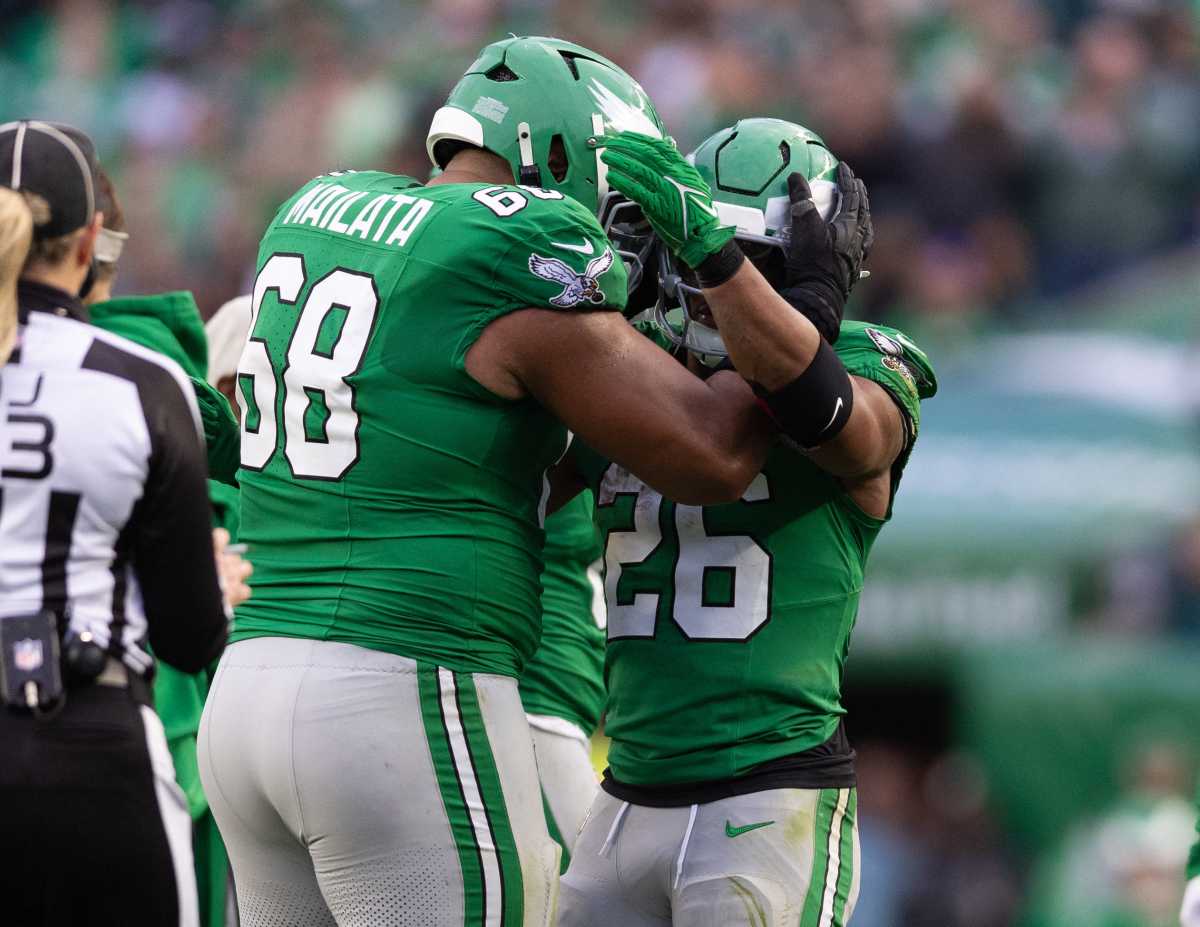If you’ve driven around the city recently, you may have noticed some new billboards—and they pose a very important question.
For Freedoms, an artist collective, has recently launched a campaign nationwide in over 25 cities (including Philadelphia) to respond to the question—What Does Justice Mean To You?
“By wielding the power of art, we aim to deepen and expand our capacity to interrogate what is and imagine what could be, especially in terms of civic engagement,” explains For Freedoms Executive Director Claudia Pena. “At For Freedoms, we leverage our resources to support and collaborate with artists as they create work related to our four freedoms: Awakening, Justice, Healing and Listening. That collaboration looks different every time.”
Pena works with others in the organization to determine what new themes should be examined for campaigns, and who ultimately participates.
“We deepen with each other through various exercises on the issues and ideas that inspire us,” Pena continues. “Through this internal work, we strive to prompt dialogue externally, which is what excites me most.”
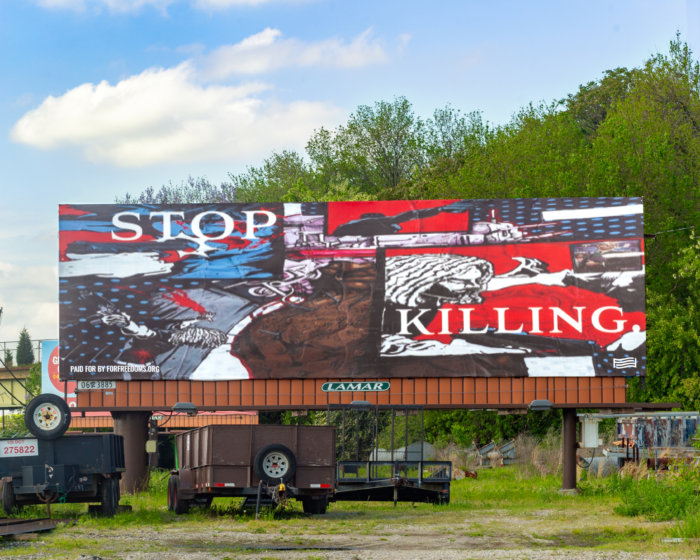
The executive director also explains the collective was originally inspired by FDR’s four freedoms: Freedom from want, freedom of
worship, freedom from fear and freedom of free speech. And in 2018, For Freedoms put their ideas into motion by remixing artist Norman Rockwell’s series of work depicting those freedoms to more accurately represent what the people of the United States look like today.
“In 2020, we updated our four freedoms to Awakening, Justice, Healing and Listening. So this year, we’ve been focused on ‘Another Justice: By Any Medium Necessary.’ The way we approach each of these freedoms is to create an ‘invitation’ for others to participate. This billboard campaign was one manifestation of that invitation,” continues Pena.
The collective asked artists their personal interpretation of the word justice for the billboards. And from there on out, they had free reign to come up with a visual response.
“We are not prescriptive, this is not a commission,” Pena explains. “We are truly interested, and often sitting at the edge of our seat awaiting what each artist creates. In this campaign, we were even more curious because this is the first time we’ve invited such a large number of what we refer to as [a] ‘non-identifying artist.’ Though at FF, we believe and know everyone is an artist, we also understand not everyone sees themselves that way. So it was especially interesting to see what people who don’t think of themselves as creative would create.”
And the City of Philadelphia was an obvious choice for the organization with multiple founders and artists having ties here.
“On top of which, there is so much beauty and so much tragedy that comes out of Philly. So many of the most inspiring artists come from Philly and at the same time, gun violence is sky high. Some incredibly visionary leaders have been really innovative in Philly and that goes hand in hand with the need for creative thinking in order to address poverty and trauma. Philly is rich with love and yet, racial divides persist,” implores Pena. “It is crucial that Philly take part in any conversation about justice because it has the lived experience to foreground what matters.”
Having the billboards put up as visual representations of such a complex topic is just the beginning. Overall, like most art, the billboard campaign is hoping to inspire change.
“Though it is not always the case, very often in democracies it is the collective consciousness of the people that influences law and policy. I don’t believe what our country currently calls the criminal justice system has anything to do with justice at all. And if people were to think more deeply about the kind of world they want to live in, the kind of justice they and their loved ones would like to experience, and what kind of justice is actually effective and generative for society, [then] I believe it would build up to an entirely new paradigm around justice. That would affect how the state promotes and practices justice,” Pena continues.
And what does justice mean to Pena? The executive director puts it simply—invoking the concept of balance. When there is a wrong done, right that wrong. In Pena’s eyes, our society is not particularly good at taking accountability, in part because our nation is not very accountable.
“When people are accountable for their actions, they try to make amends. They try to right their wrongs, and if that’s not possible [they] at least try to make it as right as possible. This is an attempt to bring balance back, and that is justice.”
Another iron to the fire is the fact that the United States leads the globe in mass incarceration.
“Our government has done almost nothing to make amends for any of the harms it imposed on vulnerable communities such as native peoples on U.S. soil, Black people, the people of Iraq and Afghanistan, Mexicans – especially those in Texas, California, New Mexico, Arizona [and] Nevada,” says Pena. “We have caused an outsized amount of harm to the environment as a nation, [and] we are steadily rolling back on gender rights.”
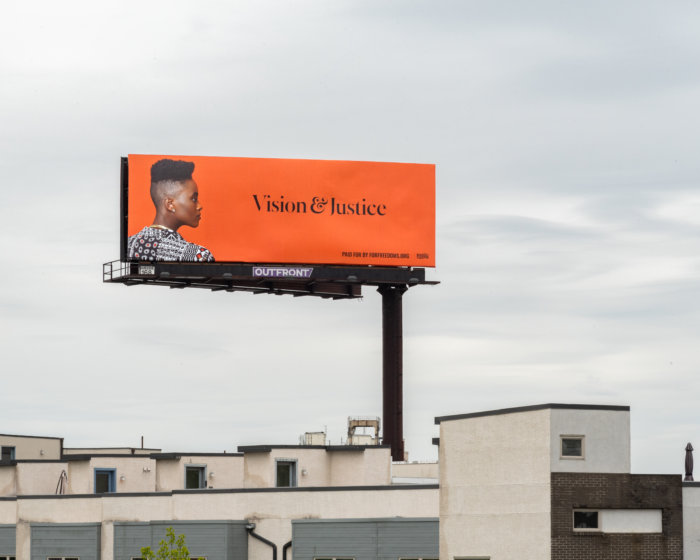
Yet, there’s always hope.
“The uprisings of 2020 were some of the most impressive and inspiring moments of my life,” the executive director continues. “Gen Z is the truth… studies show people are more and more in support of mass decarceration, in support of expanding rights for vulnerable communities, in support of reparations of all kinds and more climate-conscious than any other generation. I also believe in human ingenuity and our deep capacity for love and compassion.”
What’s next for For Freedoms after the billboard campaign is to increase the collective consciousness around the lack of effectiveness of incarceration. The organization also has an artifact that they created to accompany ‘Another Justice, titled The Infinite Atlas.’ The document was originally created in newsprint but lives on their website and it holds the Justice Calibration Tool—a series of prompts that invite you to consider how your upbringing informs your ideas of justice.
Through that online document, visitors can also check out a syllabus to study ideas of justice more deeply. For Freedoms also helped launch the Center for Justice at UCLA in California, which serves as a hub for artists, formerly and currently incarcerated people, civil rights advocates and elected officials to work together towards mass decarceration.
“There is now bi-partisan support for reducing the number of people behind bars because of empirical evidence [showing that] locking people up does not reduce recidivism and does not make our communities safer or healthier. People need healing, they need education and mentorship and they need jobs,” says Pena. “We think of justice as a path or a journey. It requires constant calibration to make sure you’re still on it, and each person’s path to justice is slightly different than the next. We may never quite get there because there are constantly new terrains to decipher… But remaining committed to the journey is crucial.”
To learn more information about For Freedoms and their billboard campaign, visit forfreedoms.org




